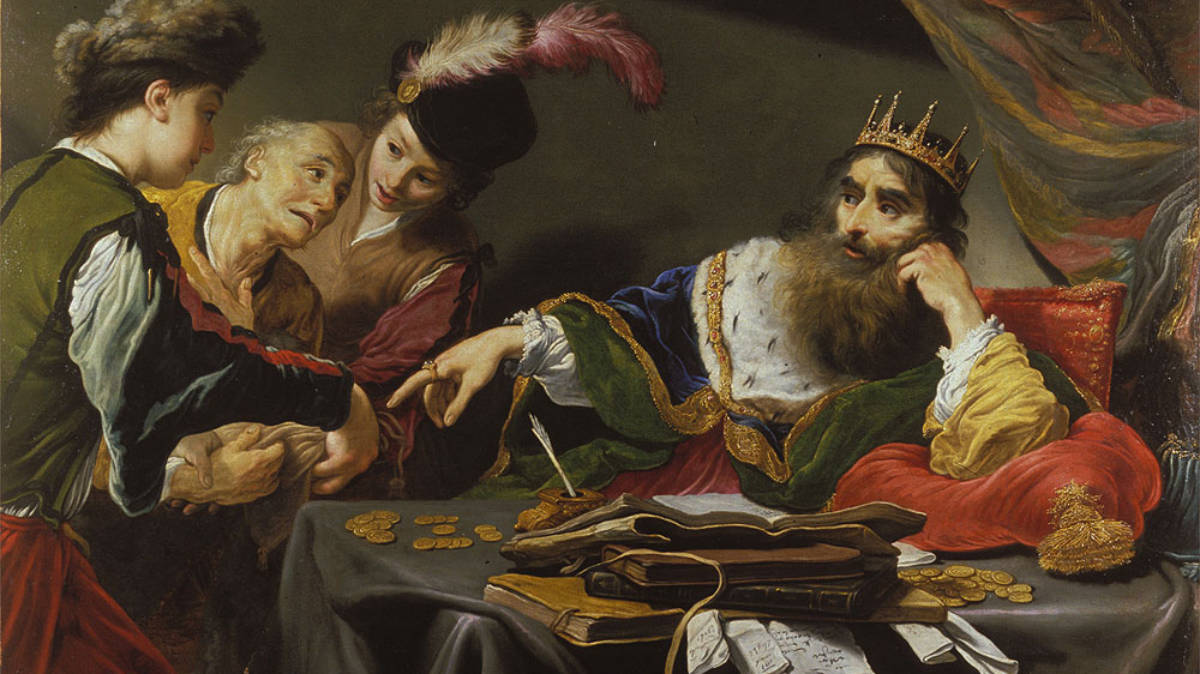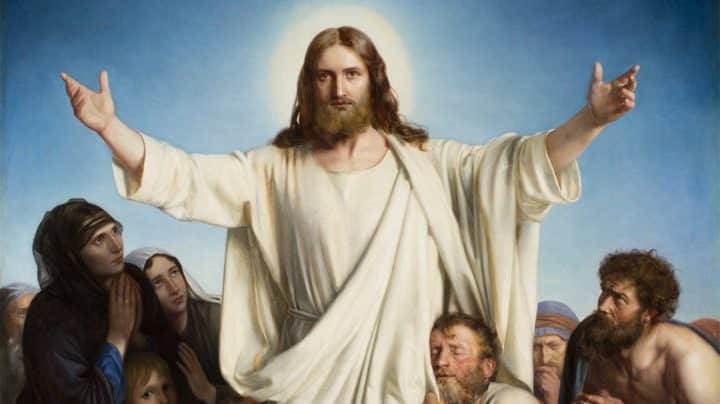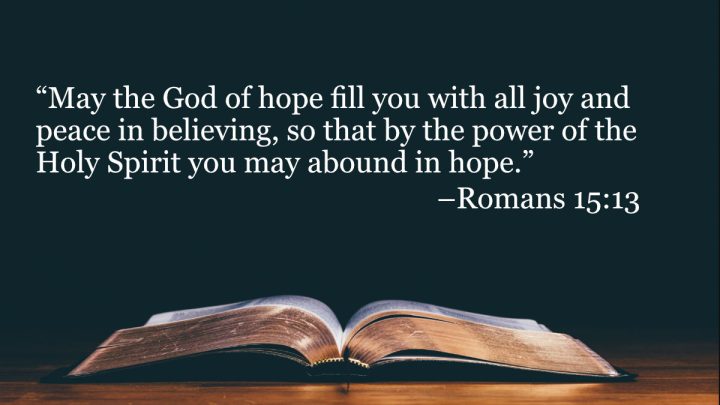
Each of us should aspire to be missionary disciples who are fully alive in Jesus Christ, reflecting his love and mercy!
After all, God became man while remaining God, and gave his life for you and for me to rescue us from our sins and restore us to communion with him. He died for you and for each of us.
God did not have to do this. Jesus gave his life freely. He freely chose to redeem us and restore us to life and freedom. He invites you into this relationship and new life. He does not force this gift on you.
The Catechism teaches us that this great gift imposes a responsibility on us.
“God’s free initiative demands man’s free response, for God has created man in his image by conferring on him, along with freedom, the power to know him and love him. The soul only enters freely into the communion of love. God immediately touches and directly moves the heart of man. He has placed in man a longing for truth and goodness that only he can satisfy. The promises of “eternal life” respond, beyond all hope, to this desire…”
– CCC 2002
When we accept God’s loving gift, we are transformed. At Baptism, we are infused with sanctifying grace—a share of God’s divine life. We also receive the theological virtues of Faith, Hope, and Charity that make it possible for us to live this new life God offers.
And so, we hear St. Paul say in today’s second reading:
“None of us lives for oneself, and no one dies for oneself.
For if we live, we live for the Lord,
and if we die, we die for the Lord;
so then, whether we live or die, we are the Lord’s.”– Romans 14:7-8
This is the dignity given by Christ to every Christian. Indeed, each human person possesses a dignity that comes not from oneself, but from God, in that we were made in God’s image and likeness, in freedom, for everlasting communion with God in the life to come. And God desires each human person to come to this fullness of life in Jesus Christ.
So again, we owe to God, and to one another, a great responsibility because of the dignity of this invitation to new life. We have to say yes to this gift and embrace this new life.
I sometimes need to remind myself, maybe you do too, of the magnificence of God’s gift of mercy. We cannot take so great a gift and privilege for granted. Sin still exists in this life. We still must struggle against sin and the devil.
Each of us knows and has experienced this struggle. You may find yourself struggling with a smorgasbord of sins and there may be a particular sin you can’t seem to overcome. So, hopefully, we confess our sins and receive the Lord’s forgiveness. Jesus tells us to go and sin no more.
How many times have you made a good confession, asking the Lord to forgive you once again, perhaps for the same sin, over and over and over again. I give thanks to God that the Lord’s mercy knows no limit, he forgives me every time I approach him with a contrite heart.
Like me, you likely pray the Our Father multiple times every day. The Lord taught us this prayer. In it we say, “forgive us our trespasses and we forgive those who trespass against us.” We ask the Lord to forgive us in the same way for our sins against him as we forgive those who sin against us. Do you forgive others with the same generous spirit that the Lord forgives you?
If you are the Lord’s, if you have said yes to his love, then you must be a person of love and mercy; there is no other path for us to take and remain in the Lord’s grace.
Today’s first reading from Sirach teaches us that wrath and anger are hateful things that sinners tend to cling to. This is not the path to the forgiveness of our own sin. However, if we forgive others instead of choosing wrath and anger, then the Lord will forgive us our sins when we pray for mercy.
Jesus taught his disciples about this truth with the Parable of the Unjust Servant in today’s gospel. Peter asked Jesus how many times we must forgive someone who sins against us. Jesus answered that seven times was not enough; we must forgive seven times seventy times—or in other words, there is no limit.
It is so easy to withhold forgiveness. Too many tend to hold grudges… sometimes for years and a lifetime. Yet we expect and hope that Jesus will forgive us every time we ask him for forgiveness.
To illustrate this point Jesus points out the unjust servant who when forgiven a great debt by his master, subsequently refused to forgive another servant who was indebted to him. The master then exacted payment from the servant he had forgiven.
God entered our history to rescue us and bring us to new life. Only he could do this, we could not. And so, Jesus instructs us to show mercy to one another as we have been shown mercy by God.
My brothers and sisters, God has loved us so much. He has done so much for us. As the Father showed his love and mercy to us in Christ, we are now sent to show the Lord’s love and mercy by sharing the power of the Gospel with others through our words and actions.
When have you failed to forgive? When have you been slow to love and forget? Who in your life do you need to forgive? The Lord asks you to not let another day go by without showing this mercy and love.
Into the deep…
Image credit: “The Parable of the Unforgiving Servant” (detail) | Claude Vignon, Public domain, via Wikimedia Commons
The scripture readings at Mass for the Twenty-fourth Sunday in Ordinary Time (Year A) are: Sirach 27:30–28:7; | Psalms 103:1-2, 3-4, 9-10, 11-12; | Romans 14:7-9; | Matthew 18:21-35;
A popular and engaging speaker, Deacon Bickerstaff is available to speak at your parish or event. Be sure to check out his Speaker Page to learn more. Into the Deep is a regular feature of the The Integrated Catholic Life™.
Please help spread the Gospel. Share this article with family and friends on Facebook and other social media.
Please help us. We strive to operate on a very small budget, but we need your help. Both one-time and monthly donations are welcome. Just $10 a month will help cover the cost.




